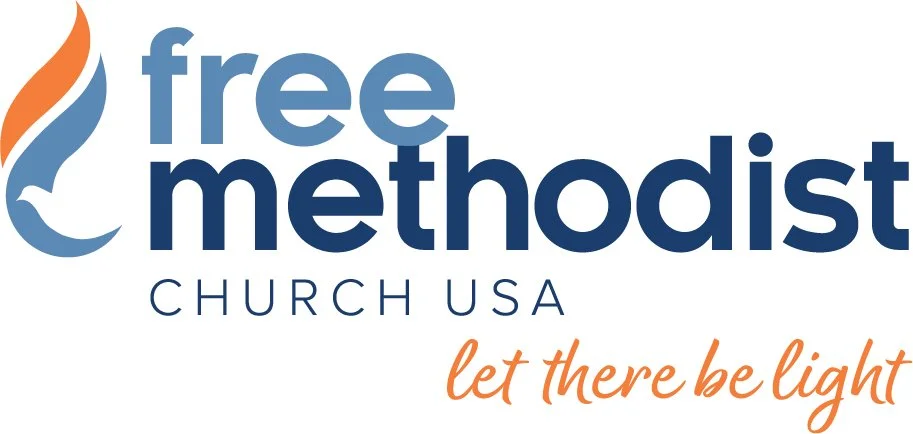Who are the Free Methodists?
Free Methodism as born on August 23, 1860 in Pekin, NY. Influenced by the holiness movement, Pastor Benjamin Titus Roberts and others in the Methodist Episcopal Church (the name for Methodism in America at the time) encouraged a return to the doctrines and practices of early Methodism and its founder, John Wesley.
Their views were unwelcome, and a new denomination was formed: the Free Methodist Church.
Several key issues of the day helped give the new denomination its name:
"Free" Methodists opposed slavery, championing every individual's freedom. Many Methodist Episcopal Church members were slave owners.
"Free" Methodists opposed the renting and selling of church pews, a common practice that effectively disenfranchised the poor, relegating them to the benches in the back of the sanctuary. (John Wesley had clearly demonstrated a desire to reach and include the poor and downtrodden.) Free Methodists called for free seats for all and emphasized tithes and offerings - not income collected for seating or raised through bake sales and such - to support the church's ministries.
"Free" Methodists supported freedom in worship, in contrast to the deadening formalism so prevalent in the Methodist Episcopal churches of the day.
The newly named "Free Methodists" sought to maintain the heritage of original Methodism with its spirit filled biblical message and lifestyle.
Free Methodism today continues to follow in the footsteps of its founders, emphasizing faithfulness to the biblical message, personal and social holiness, a deep devotion to Bible study and discipleship, and a conservative outlook that translates into active concern for the poor and lost everywhere.
Become a Member
Membership can sound so intimidating. That's why we talk about covenant. That's why we talk about a deepening and sweetening of the key relationships of our lives. We talk about becoming a part of an organic group with whom we participate in the pilgrimage of life.
In covenant membership we choose to join with each other, and mystically become the body of Christ. In fact, we can not be the body of Christ by ourselves; the mystery requires others, it requires mutual submission, it requires peace making and it requires a purpose together.
Contact the church office by email for further information about membership at 815-338-3180.
Distinctive Free Methodist Principles
The Free Methodist Church emphasizes certain issues and concerns in its preaching and activities. A church must have an identity if it is to be healthy and carry out its purposes. Explanations follow of five of these emphases that have top priority.
Scriptural Holiness
The Free Methodist Church recognizes the Bible as the rule for all matters of faith and life. Free Methodists practice a positive holiness that is a disciplined lifestyle motivated by Christian love. The holy life, a life of wholeness, is life lived at its best. It is the normal way for Christians to live.Practical Godliness
The Free Methodist Church is not satisfied with just talk. Rules of conduct, detailed in the Membership Covenant, spell out practical guidelines for living a truly holy life. In this way, walk and talk match up.Social Concern
Our Methodist heritage is lived out in social sensitivity, in Christian love shown through compassion and service. Both in North America and overseas, the Free Methodist Church sponsors programs to meet human need: hospitals, schools, homes for the elderly, and a worldwide child sponsorship program.Christian Education
The Free Methodist Church believes that Christianity and education go together. B.T. Roberts, a founder of Free Methodism, also started its first school, Chili Seminary, now Roberts Wesleyan College in North Chili, New York. Today there are six more church related schools of higher education. Concern for quality Christian education is also reflected in local churches through Sunday school classes and midweek programs for all ages.Evangelism and Foreign Missions
Winning people to Christ is at the heart of all all that Free Methodist people do. Evangelism involves honest concern for others the Free Methodist Church as an aggressive plant or reaching people for Christ and planting new The Free Methodist Church maintains an active foreign missions program of evangelism and Christian education.
Click fmcusa.org/webelieve to read.
History of the Woodstock Free Methodist Church
On October 19, 1891 the Woodstock Class was first organized into an independent church group. This charter meeting was held in the home of Mrs. Fannie Thompson.
In 1892 a brick church was constructed as a place of worship on the corner of East Judd and Jefferson Streets. The first minister appointed to the new church was the Rev. Peter Newcomer.
A new church was built in 1904 on the corner of McHenry and Seminary Avenues ("Six Corners"). It was here that the church made its contribution as the "Church at the Crossroads." The site was chosen to minister to the residents of the Children's Home and Sunset Manor (now known as Hearthstone Communities).
Rev. Eustice Kirkpatrick was appointed pastor in 1956. The church launched a campaign to purchase property just north of Sunset Manor on Seminary Avenue which is its present-day location.
In 1958 construction on the new church began. The society had outgrown its present location, two worship services were held on Sunday mornings, eight regular Sunday school classes were held in private homes, and membership had grown considerably. The new church was dedicated on November 22, 1959. The construction of the Christian education wing to the north of the church was completed in 1966.
Our "Nehemiah Project" began in 2007 and completed in 2010...a dream to update and beautify the church sanctuary, replace old windows and add air-conditioning.
